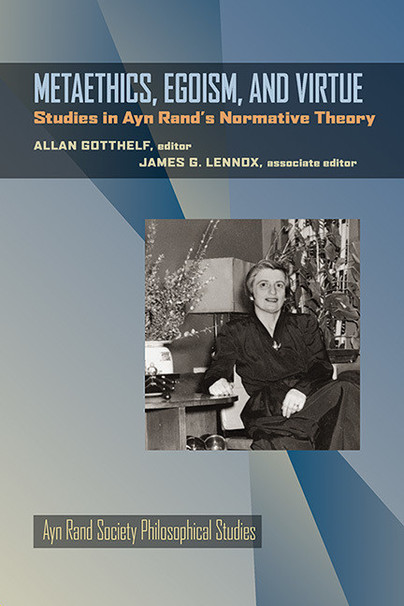Metaethics, Egoism, and Virtue (Paperback)
Studies in Ayn Rand's Normative Theory
Imprint: University of Pittsburgh Press
Series: Ayn Rand Society Philosophical Studies
Pages: 200
ISBN: 9780822962724
Published: 15th January 2014
Script Academic & Professional
Series: Ayn Rand Society Philosophical Studies
Pages: 200
ISBN: 9780822962724
Published: 15th January 2014
Script Academic & Professional
This book will be reprinted and your order will be released in due course.
You'll be £37.00 closer to your next £10.00 credit when you purchase Metaethics, Egoism, and Virtue. What's this?
+£4.99 UK Delivery or free UK delivery if order is over £40
(click here for international delivery rates)
Need a currency converter? Check XE.com for live rates
(click here for international delivery rates)
Need a currency converter? Check XE.com for live rates
Philosopher-novelist Ayn Rand (1905–1982) is a cultural phenomenon. Her books have sold more than 25 million copies, and countless individuals speak of her writings as having significantly influenced their lives. In spite of the popular interest in her ideas, or perhaps because of it, RandÆs work has until recently received little serious attention from academics. Though best known among philosophers for her strong support of egoism in ethics and capitalism in politics, there is an increasingly widespread awareness of both the range and the systematic character of RandÆs philosophic thought. This new series, developed in conjunction with the Ayn Rand Society, an affiliated group of the American Philosophical Association, Eastern Division, seeks a fuller scholarly understanding of this highly original and influential thinker.The first volume starts not with the metaphysical and epistemological fundamentals of RandÆs thought, but with central aspects of her ethical theory. Though her endorsement of ethical egoism is well-known—one of her most familiar essay collections is The Virtue of Selfishness—the character of her egoism is not. The chapters in this volume address the basis of her egoism in a virtue-centered normative ethics; her account of how moral norms in general are themselves based on a fundamental choice by an agent to value his own life; and how her own approach to the foundations of ethics is to be compared and contrasted with familiar approaches in the analytic ethical tradition. Philosophers interested in the objectivity of value, in the way ethical theory is (and is not) virtue-based, and in acquiring a serious understanding of an egoistic moral theory worthy of attention will find much to consider in this volume, which includes critical responses to several of its main essays.
Other titles in the series...
Other titles in University of Pittsburgh Press...



















